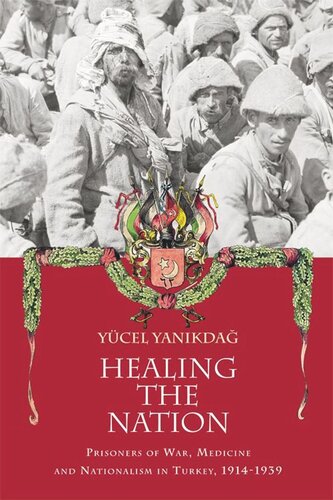

Most ebook files are in PDF format, so you can easily read them using various software such as Foxit Reader or directly on the Google Chrome browser.
Some ebook files are released by publishers in other formats such as .awz, .mobi, .epub, .fb2, etc. You may need to install specific software to read these formats on mobile/PC, such as Calibre.
Please read the tutorial at this link: https://ebookbell.com/faq
We offer FREE conversion to the popular formats you request; however, this may take some time. Therefore, right after payment, please email us, and we will try to provide the service as quickly as possible.
For some exceptional file formats or broken links (if any), please refrain from opening any disputes. Instead, email us first, and we will try to assist within a maximum of 6 hours.
EbookBell Team

5.0
90 reviewsExplores how the Great War influenced the construction of identity and nationalism in the Ottoman Empire
Yucel Yanikdag explores how, during the Great War, Ottoman prisoners of war and military doctors discursively constructed their nation as a community, and at the same time attempted to exclude certain groups from that nation. Those excluded were not always the ethnic or religious Other as might be expected. They frequently included the internal Other in different guises. While the educated officer prisoners excluded the uncivilised and illiterate peasant from their concept of the nation, doctors used international socio-medicine as the basis for excluding all those – officers, enlisted men, civilians – they deemed to be hereditarily weak.
Through the course of this study, Yanikdag looks at broader questions of nationhood. When are nations constructed? Is it when groups of people begin to think of themselves as a nation? What roles do science and medicine, as ‘rational’ fields of inquiry, play in shaping national and cultural identities? What role does Otherness play in the construction of national community?